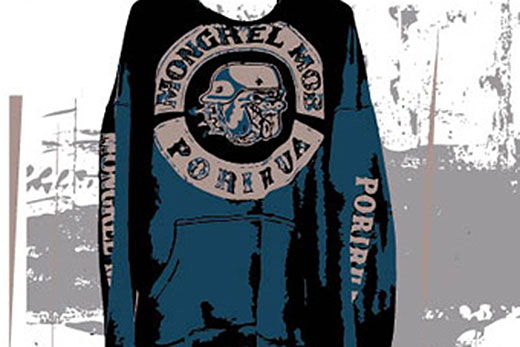Mum's a family violence victim, and Dad's in prison. So are several of your uncles, and cousins. Most people around you do drugs and commit crime, and it's rare in your family for people to have a job.
|
Trouble is, there is no mighty claw that can pick you up by the scruff of the neck and transport you into a life where people don't do crime or drugs and have hope for the future.
In 2014, a plan was launched to bring several government agencies together to significantly reduce the harm caused by gangs, and to identify and offer support to people who want out – a mighty claw of sorts. Deputy Commissioner Mike Clement says one main aspect of that Gang Action Plan (GAP) is now operational. 'The Gang Intelligence Centre (GIC) is a cross-agency partnership to build the richest and most detailed picture yet seen of gang membership and affiliation in New Zealand.” He says the scenario at the start of this story is real life for many children at the bottom of New Zealand's gang family trees. 'We know these are the kinds of risk factors that lead to poor outcomes later in life.” |
The GIC, hosted at Police National Headquarters (PNHQ), includes staff from the Ministry of Social Development, Customs, Corrections, Internal Affairs, Immigration and Police – sharing information to cross-match intelligence for use in two main ways: enforcement; and identifying positive options for routes out of gang life.
Other GAP work includes operational taskforces focused on methamphetamine and gang asset seizures; law changes to better support enforcement agencies; and social support programmes. All is fed by the GIC.
Mike says modern policing of gang crime has to be a sophisticated mix of intelligence-led enforcement activities and prevention. 'We've been locking them up for years and yet the meth problem is growing exponentially. We're not going to stop enforcing, but lasting change also needs community resistance, and real positive options.”
Detective Brad Grainger says he was initially resistant to the idea that offering a ladder of social support was critical to reducing gang offending.
'But then I saw that it worked and became a strong advocate for it,” he says.
'The art of this kind of policing is sitting down and listening to someone and working out what their reason really is for joining a gang. They will have some sort of need that they are trying to get fulfilled.
'It has to be on an individual basis. You can't apply the same formula to everybody. Then it's about reducing their opportunity to offend, rehabilitation and redirection to more positive behaviour.
'We get a mixed result. It's a lot easier to do prevention before someone gets entrenched into the life. Younger gang family members are the potential recruits of tomorrow.
'But on a one-to one basis, if you sit down and speak to someone, you often find they are in something they don't want to be in. You don't get very many happy gang members.”
Information from Ten One Magazine.



6 comments
Iwi where are you?
Posted on 16-03-2016 07:28 | By kb
I think the "mighty claw" needs to be their iwi.
iwi??
Posted on 16-03-2016 08:04 | By Boatman
Iwi? where is the Iwi?? new zealand needs to wake up and take action, its NOT just gangs, this sort of thing is in all walks of life.. Too much talk and no action
offending
Posted on 16-03-2016 14:48 | By tonyb1965
One of the problems is third generation offending, a child is not born bad or with a patch on there back it is the difference with being dragged up or brought up, the cycle has to be broken as if you live your life in an environment you treat that as normal, so fathers look at there children to follow in their footsteps and stand proud when they do
There used to be one.
Posted on 17-03-2016 18:17 | By astex
Once upon a time there WAS a "mighty claw" and it took children into care away from the crime and drugs. Then some idiot said that at almost any cost children were better off with their mothers. NOW we and more importantly, the defenseless children pay the cost of that stupidity.
Simple
Posted on 18-03-2016 10:16 | By Baystyle
If gangs equal crime then make gangs illegal. Ban them and give the police some teeth. Spot fines for wearing gang patches could redirect some resources from speed trapping motorists to an area of greater need. Perhaps then very disappointing burglary success rate stats could improve too.
Stop
Posted on 19-03-2016 19:36 | By Old
Just stop welfare to any direct family . Let family sort the problem. Why should tax payers have to take care or these low life's. Why is our system so soft.
Leave a Comment
You must be logged in to make a comment.